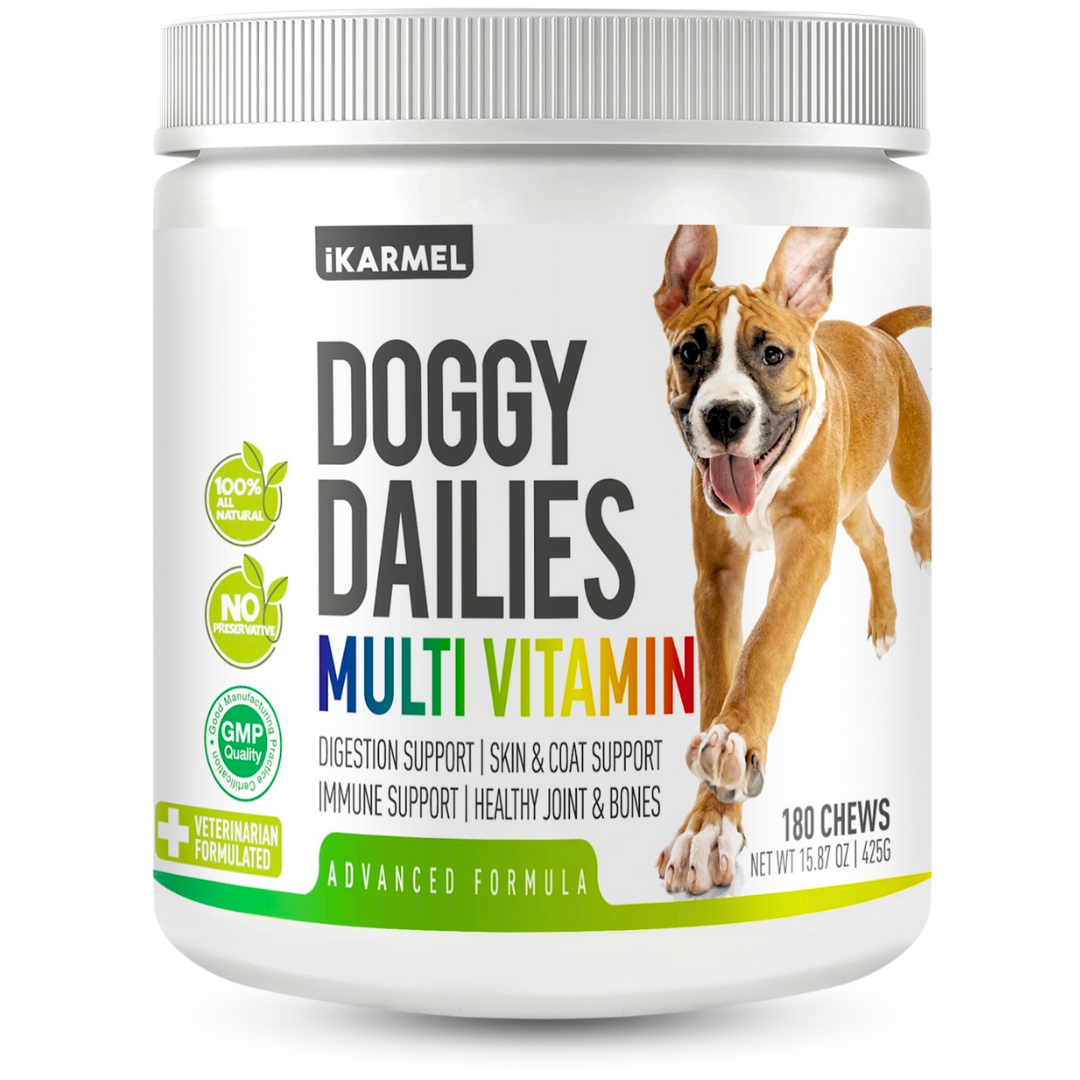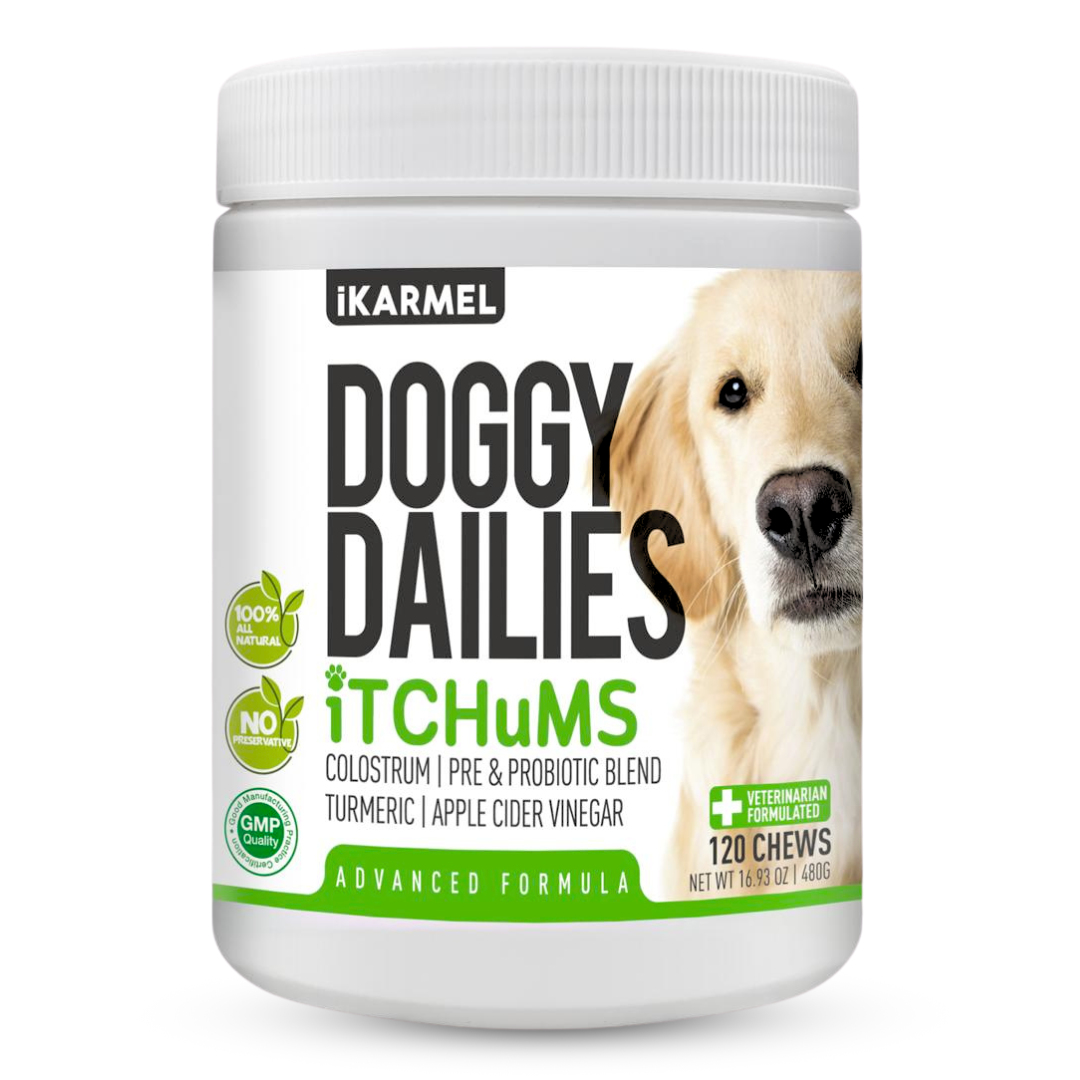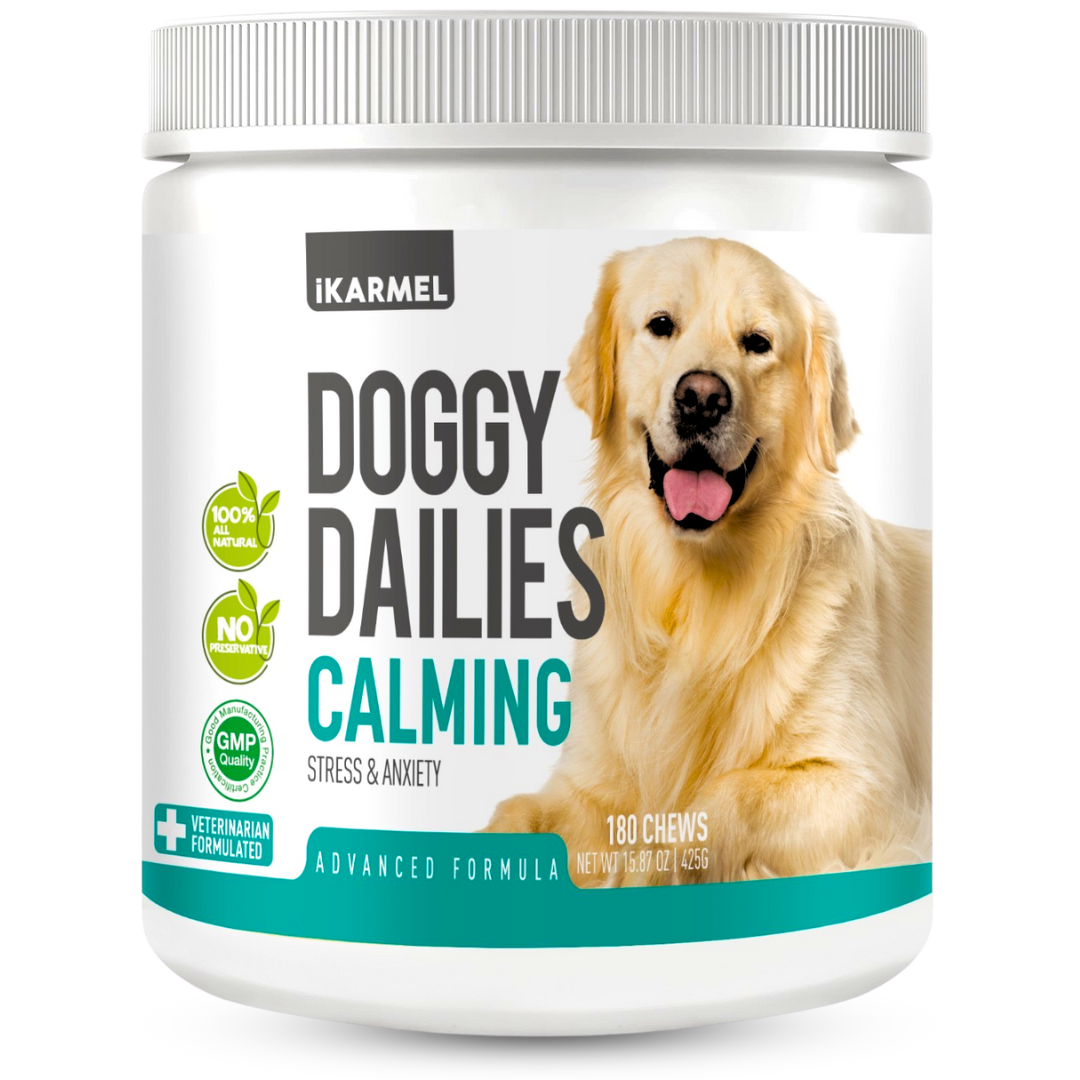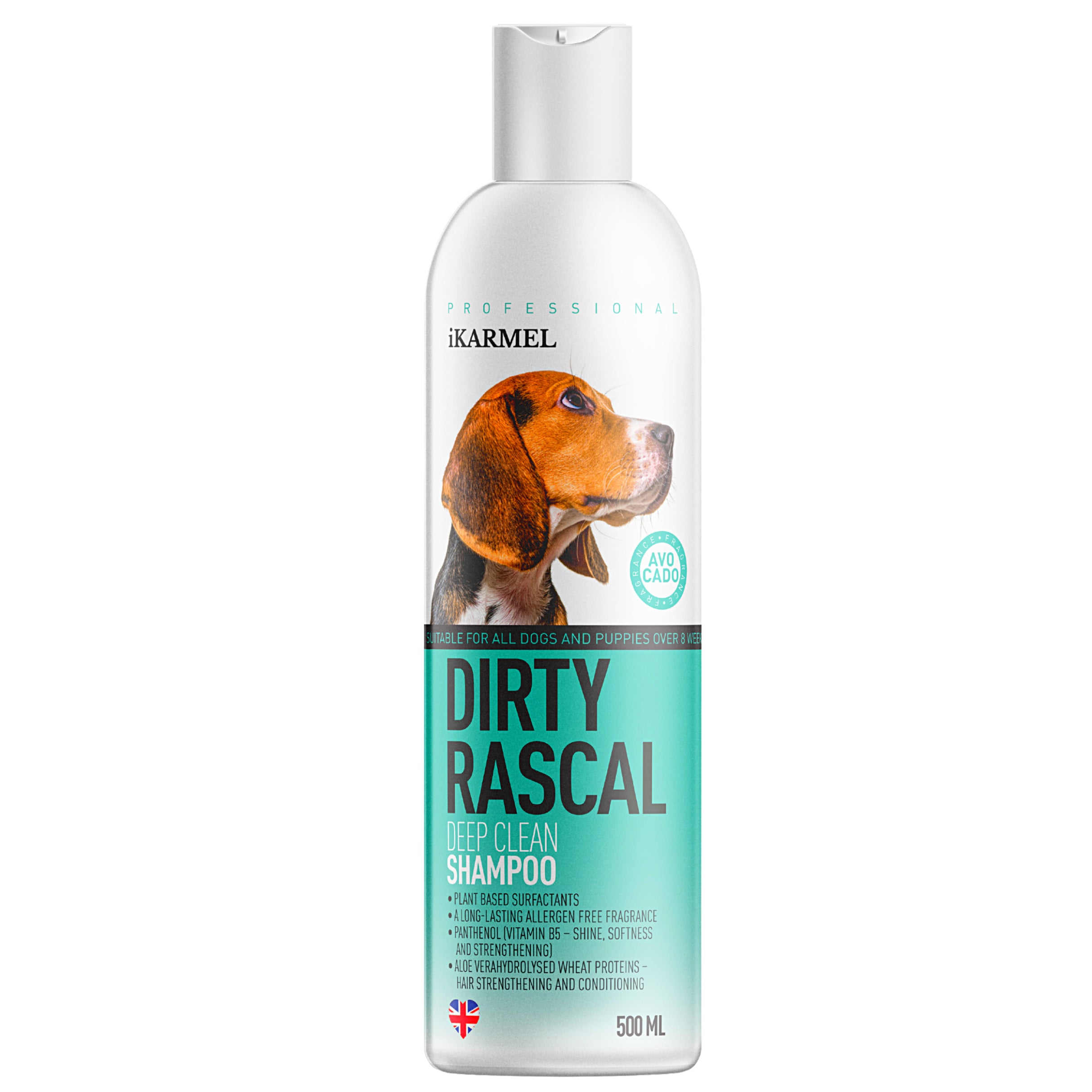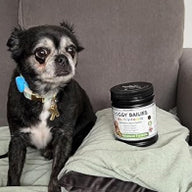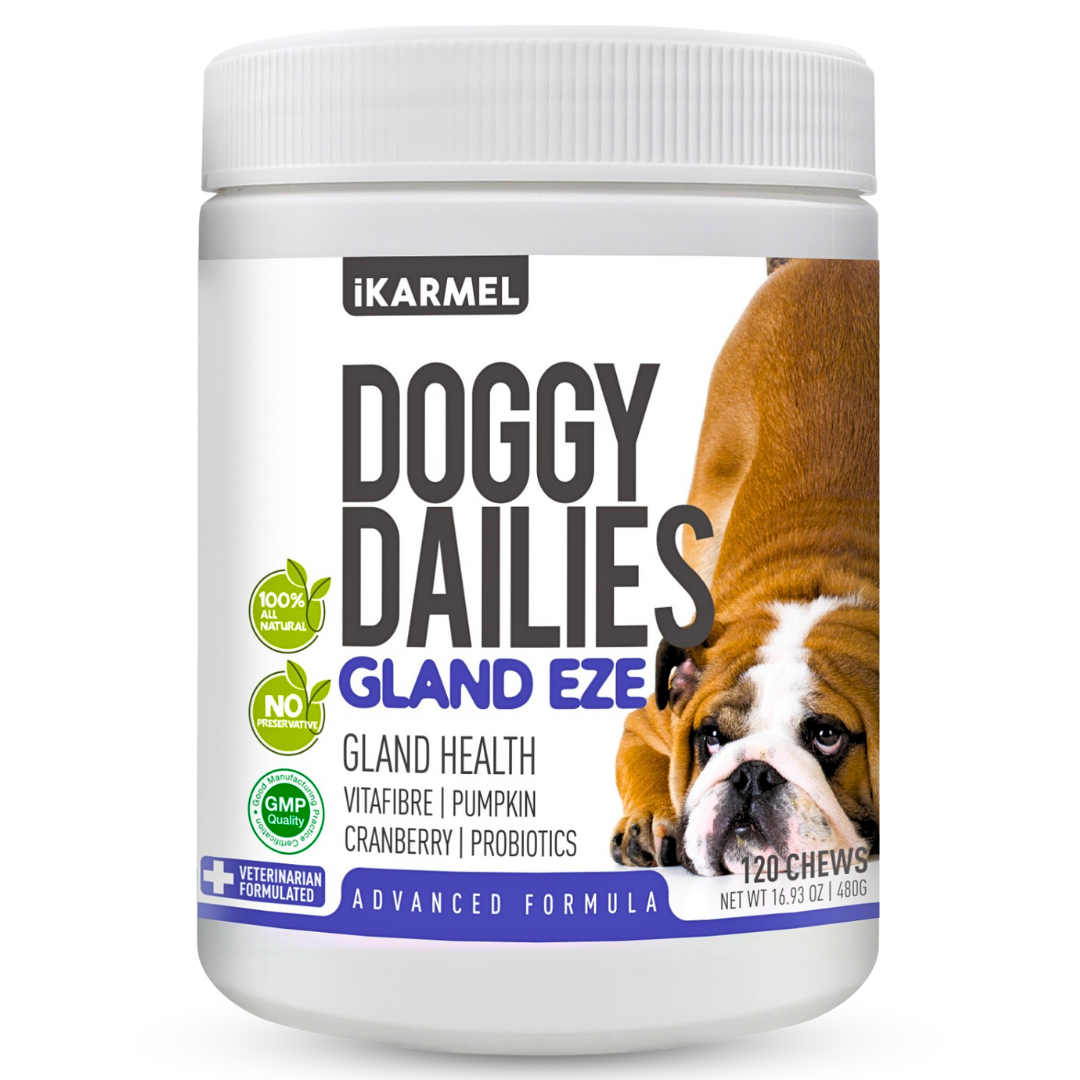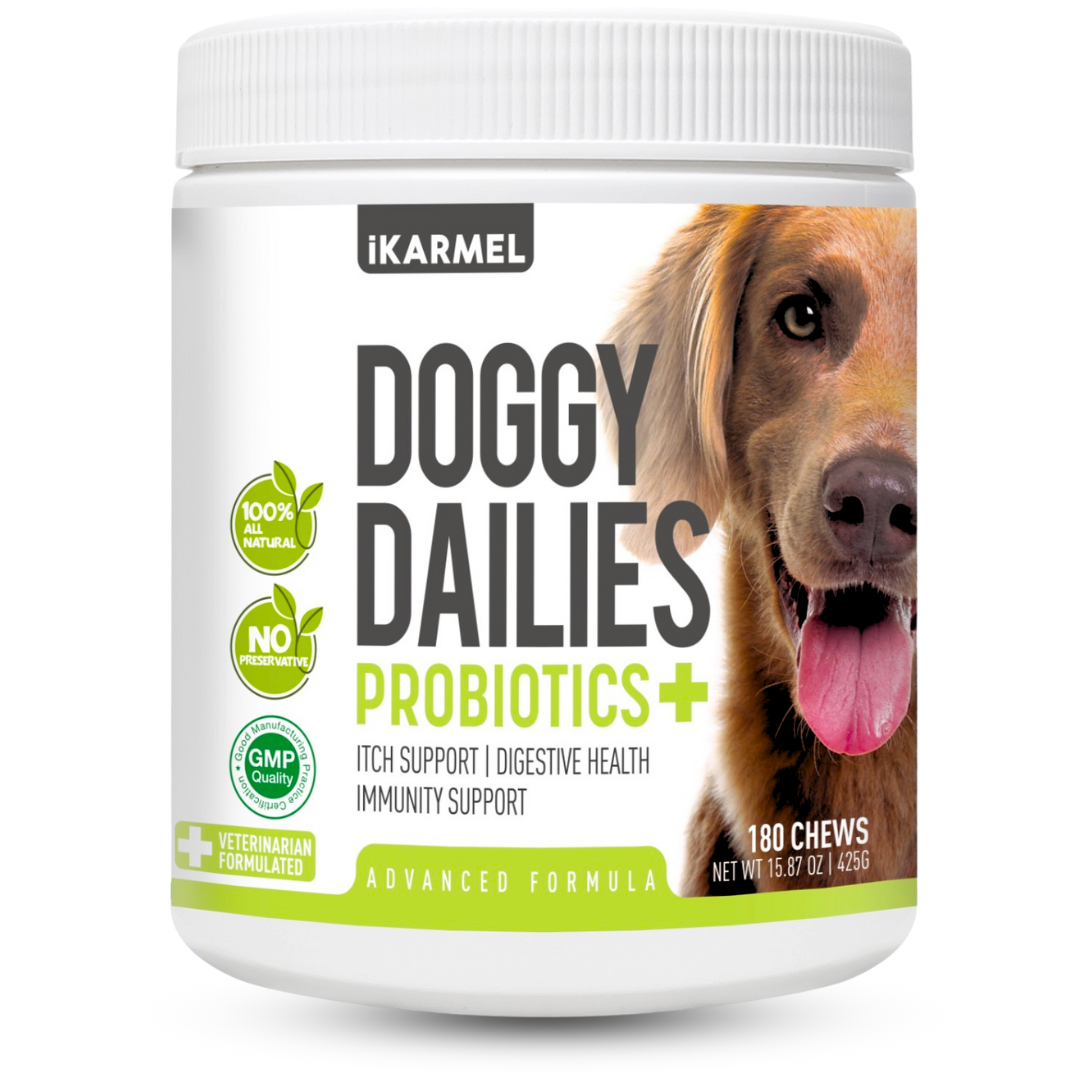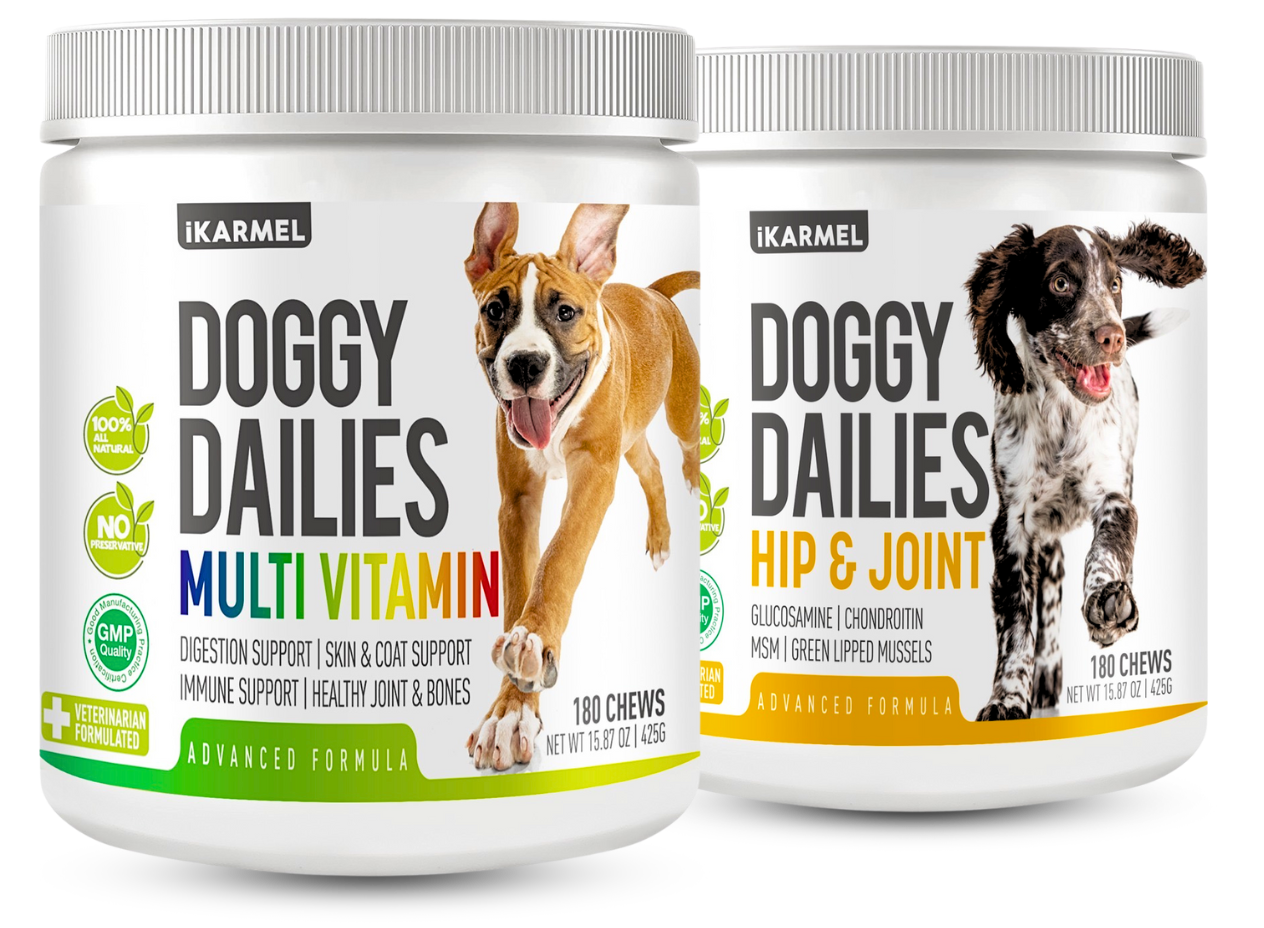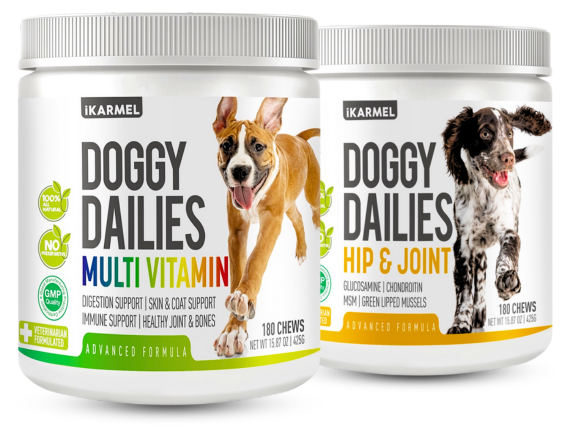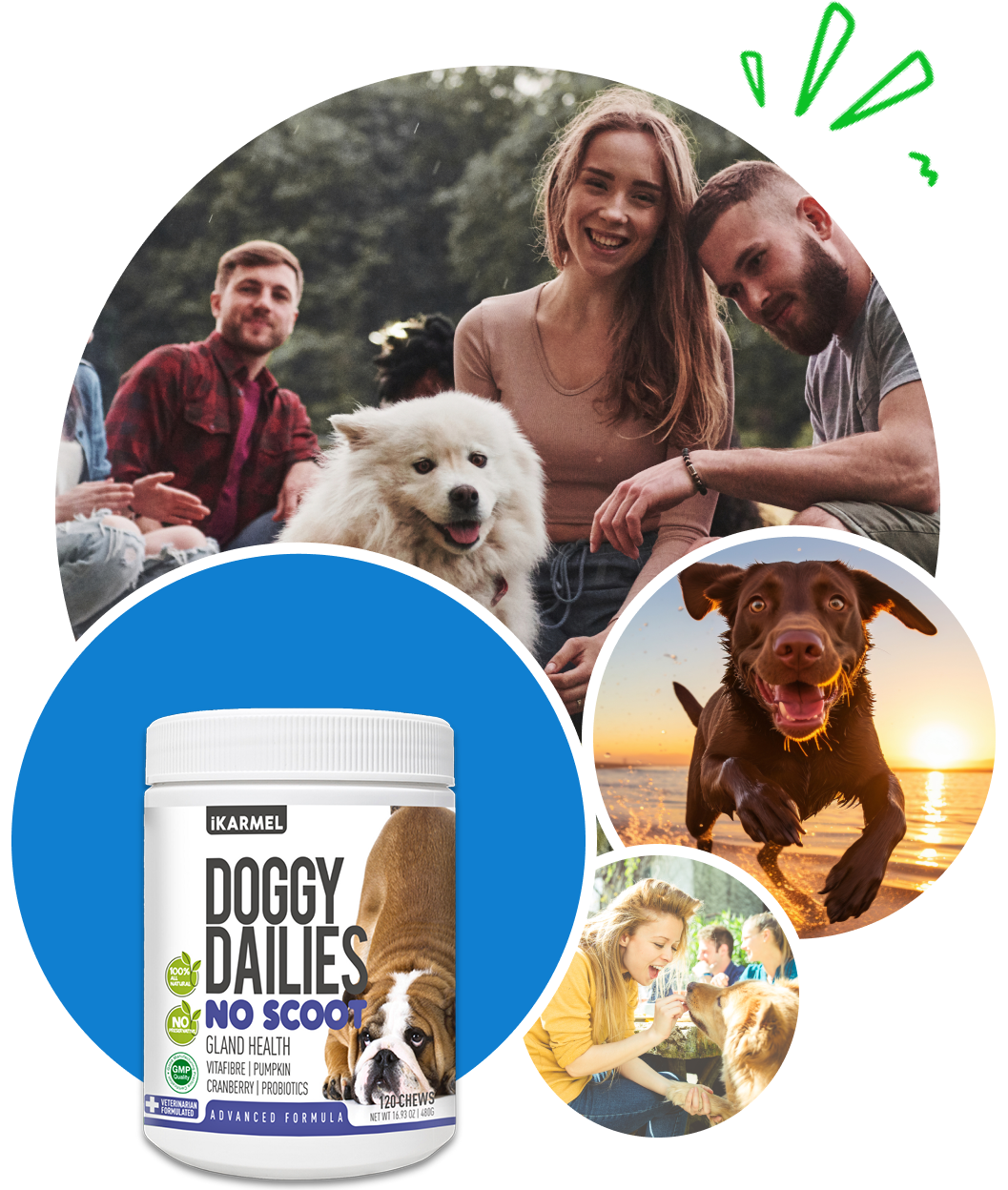How to Improve Dog Gut Health Naturally
A healthy gut is key to your dog's happiness and overall well-being. Did you know that your dog’s digestive system plays a huge role in their immune health, energy levels, and even their mood?
If your furry friend struggles with digestion issues, frequent itching, or low energy, it might be time to pay closer attention to their gut health. This article will walk you through natural ways to improve your dog's gut health and equip you with simple, actionable steps for a healthier pup.
You’ll also learn about the benefits of probiotics, adding fibre to your dog’s diet, and how to ensure they're receiving balanced nutrition.
Why Is Gut Health Important for Dogs?
Your dog's gut, like ours, is filled with trillions of bacteria. When the balance of good vs. bad bacteria is disrupted, it can lead to a range of health problems, including digestive issues, allergies, and even behavioural changes.
Signs your dog’s gut health needs attention:
- Loose or irregular stools
- Excessive gas or bloating
- Low energy levels
- Frequent itching or allergies
- Poor coat quality
Improving gut health naturally not only alleviates these issues but also supports a stronger immune system and boosts overall vitality.

6 Steps to Improve Dog Gut Health Naturally
1. Provide a Balanced Diet
The foundation of good gut health is a balanced, nutritious diet. Choose high-quality dog food with wholesome ingredients and avoid fillers like corn, wheat, and soy.
What to prioritise in their diet:
- Protein from lean meats like chicken, turkey, or fish
- Healthy fats like Omega-3 from salmon oil for coat and joint health
- Complex carbohydrates like sweet potatoes or brown rice for energy and fibre
💡 Pro Tip: Avoid overly processed foods and opt for natural dog food with fewer artificial additives.
2. Add Probiotics to Their Routine
Probiotics are great for replenishing the good bacteria in your dog's gut. They can aid digestion, prevent diarrhoea, and bolster your dog's immune system.
The best probiotics for dogs include:
- Lactobacillus acidophilus
- Bifidobacterium animals
- Enterococcus faecium
You can find these in dog-friendly probiotic supplements or look for natural sources like plain yoghurt (unsweetened and lactose-free) or kefir, which contains live cultures.
📢 Should I give my dog probiotics every day? Yes! Probiotics can be given daily to support regular digestion and gut health.
3. Incorporate Fibre
Fibre helps maintain a healthy gut microbiome and supports regular bowel movements. Adding natural sources of fibre to your dog’s meals is simple and effective.
High-fibre foods for dogs:
- Pumpkin (canned, unsweetened)
- Green beans
- Carrots
- Oats or bran
🌟 How to add fibre to dogs’ diets naturally:
Simply mix a tablespoon of pureed pumpkin or cooked veggies into their food.
4. Ensure Hydration
Dehydration can negatively impact digestion. Make sure your dog always has access to fresh, clean water.
For an extra hydration boost, try adding low-sodium bone broth to their meals. Not only does it enhance flavour, but bone broth also supports gut health and joint strength.
5. Rotate Proteins
Rotating protein sources (e.g., chicken, beef, lamb, fish) ensures your dog receives a variety of nutrients. This variety helps prevent food sensitivities and keeps their diet well-rounded.
Why protein rotation helps:
- Reduces the risk of allergies developing
- Provides diverse amino acids for muscle and overall health
Don’t forget to transition gradually to avoid digestive upset when changing protein or dog food brands.
6. Minimise Unnecessary Antibiotics
While antibiotics are sometimes necessary, overusing them can wipe out beneficial bacteria in your dog’s gut, leading to an imbalance. Consult your vet to explore alternative treatments when possible.
🛡️ Boost gut recovery post-antibiotics: Administer probiotics to replenish good bacteria and prevent long-term digestive issues.

Frequently Asked Questions About Dog Gut Health
Q1. Should I consult a vet before making dietary changes?
Yes, always consult your vet before introducing new supplements or making significant changes to your dog's diet.
Q2. What grains do dogs need for heart health?
Whole grains like brown rice and oats contain essential nutrients, including fibre, B vitamins, and magnesium, which support heart health when fed in moderation.
Q3. Are probiotics good for dogs all year round?
Absolutely! The regular use of probiotics promotes consistent gut health, improves digestion, and can even reduce seasonal allergy symptoms.
Q4. How long does it take for gut health to improve?
Changes to your dog’s gut health may take 4-6 weeks to show noticeable improvements. Patience is key!
Q5. Can I give human probiotics to my dog?
It’s best to avoid this. Human probiotics may not cater to your dog’s specific needs. Look for vet-approved dog probiotics instead.
Benefits of Good Gut Health
Once your pup’s gut health is thriving, you’ll likely observe the following benefits:
- Firmer, more regular stools 🐾
- A shinier, healthier coat ✨
- Increased energy and playfulness
- Reduced itching and allergies
- Overall improved well-being
Your dog’s happiness starts with what’s inside their bowl!
Choose iKarmel to Support Your Dog's Gut Health
Supporting your dog’s gut health doesn’t have to be complicated. Whether it’s adding probiotics, incorporating fibre, or rotating proteins, small changes can make a big difference.
💡 Take the next step to transform your pup’s health. Try iKarmel Probiotics + Itch Support Chews today! Made with all-natural ingredients like colostrum, turmeric, and salmon oil, they’re crafted to improve digestion, boost immunity, and reduce itching.
👉 [Get Yours Now & Treat Their Gut With Love!]
Your furry friend deserves the best! 🐶💕

